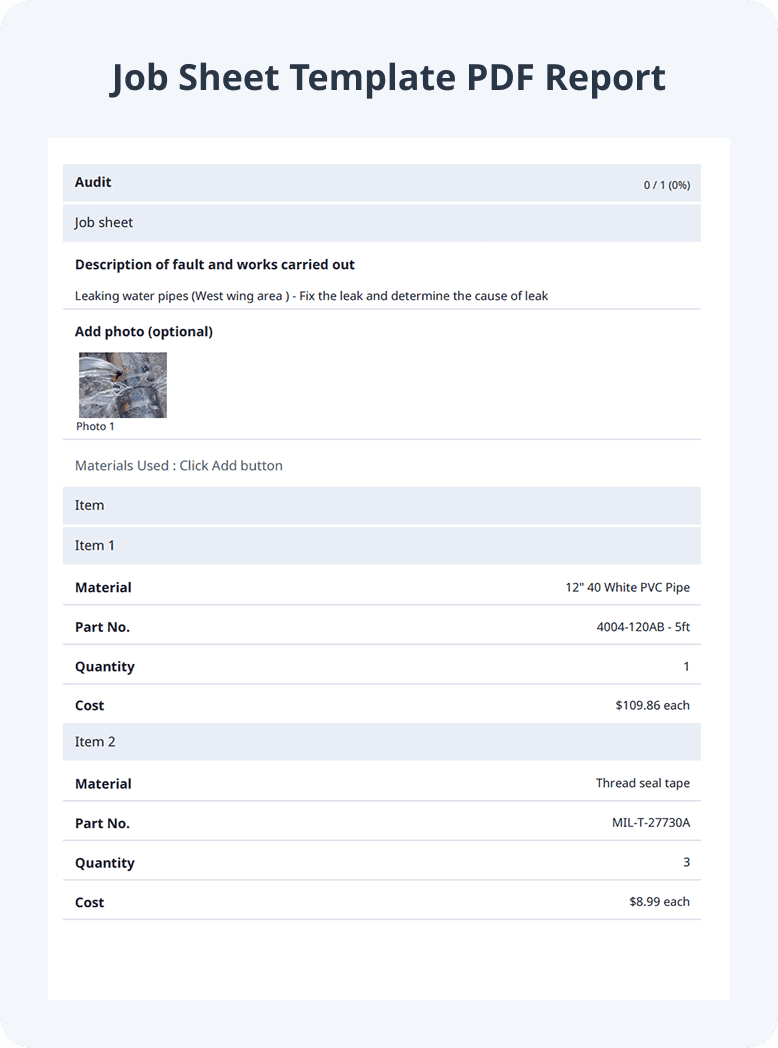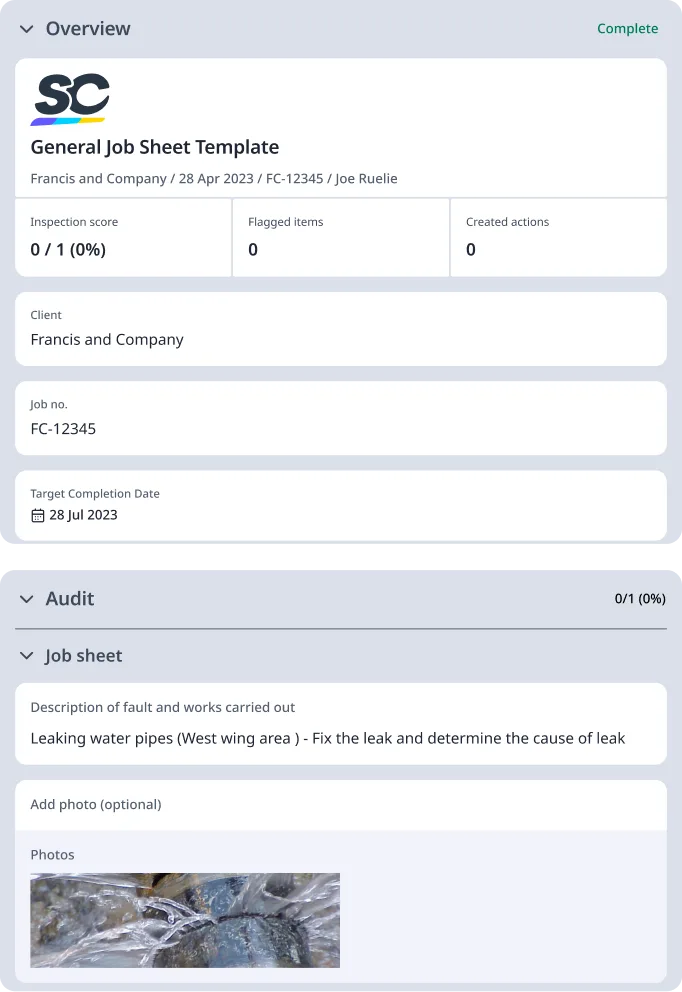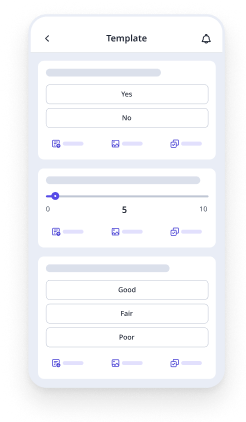Published 26 Sept 2025
Article by
5 min read
What is a Job Sheet Template?
A job sheet is a tool used by workers to document key tasks performed onsite and obtain the required client sign-off upon completion. It acts as a standardized checklist and record-keeping tool for work that needs to be done, is in progress, or has been completed. Job sheets are commonly used across engineering, manufacturing, and trade service businesses.
Purpose
The primary purpose of a job sheet is to keep track of everything that needs to be done for a specific job and to ensure that all the necessary steps are completed. Job sheets can be used in various industries and can be adapted to meet the specific needs of a business. They can also be used as standalone documents or incorporated into a more extensive process of the project management system.
Benefits
Job sheets are an efficient way to track the progress of job tasks and ensure that all necessary tasks are completed according to their specifications. They can help prevent errors and avoid missed steps, leading to time, money, and effort savings for businesses. They can also be used to help plan and track the progress of a job, all while ensuring that critical tasks are completed promptly.
In addition, a job sheet improves workflow by providing a clear guide for employees to observe, ensuring that all necessary information is included on the sheet, and using a format that is easy to follow. It can be used to track the quantity and quality of work performed. By using job sheets, businesses can improve their operations and produce high-quality products and services.
With a templated checklist, in particular, a job sheet can provide many benefits to you and your organization. By using a straightforward checklist for your job sheet, you can better understand and perform your tasks with no issues, as everything will be laid out for you. Templating it will also save you time and help promote a more standardized documentation process, as your job sheets will now be the same across the board, ensuring everyone is on the same page.
What is a Job Sheet Template?
A job sheet template is a generally-formatted version of a job sheet that can be used every time there’s a new task requiring a documented view of its overall progress. It is an efficient tool that reduces repetitive tasks such as creating job sheets from scratch and filling them manually.
Most existing job sheet templates are ready-to-use and just modified to accommodate the specific needs of a job, task, endeavor, or organization itself.
Here is a sample report using a job sheet template:

Preview Job Sheet Template PDF Report
Common Mistakes to Avoid
While job sheet templates can be a valuable tool for improving productivity and efficiency, there are several common mistakes you should avoid:
Not providing enough detail: It is important to provide clear and concise information and data on required materials and tools so as not to cause any misunderstandings between people and teams.
Neglecting to customize templates for specific jobs: While a general job sheet template can be useful, it’s best to customize it for specific jobs or tasks. This may involve adding or removing certain sections or providing additional information or instructions.
Overcomplicating the template: Job sheet templates should be designed to be user-friendly and easy to understand. Overcomplicating your sheet and its templated version with unnecessary information or formatting can make it difficult to use effectively, which can then cause misunderstandings and create an inefficient workflow.
What to Include in a Job Sheet Template
To avoid making the most common mistakes with your job sheet template, it is important to consider them all when creating your own.
When creating or filling out a job sheet, there are a few key components that should be included. Most importantly, job sheets should always outline specific job details, including the work to be done, the materials needed, and the time frame for the job. They should also list the crew or individual working on the job and the contact information for the customer or client. Finally, job sheets should include a map or directions to the job site.
Job sheet templates vary by industry but generally follow this job sheet format:
Customer information
Description of fault and works carried out
Additional works required
Costing and materials used
Worker and client sign-off
Make sure to update your job sheet template regularly with the necessary information and changes as time passes. As your organization will be experiencing different changes throughout its lifetime, your job sheet should also be kept up to date.
Challenges of Using Paper-based Forms
Given the nature of the information needed following the job sheet format, filling out job sheets present the following challenges:
Time-consuming to complete
Burdensome paperwork and difficult to recover
Difficult to analyze productivity and business KPI insights
For these reasons, it may be more helpful to explore more digital means of using and creating a job sheet. Digital solutions are now widely available for you to use, all of which aim to help improve your work systems and help you save time.
An example of one such solution is SafetyCulture (formerly iAuditor). Some benefits SafetyCulture can offer you include the following:
Ease of access: You can work anytime and anywhere because your job sheets will be easily accessible
Secure storage: Going digital ensures that your files will be safe in the cloud
Built-in reporting analytics: With SafetyCulture, you no longer have to struggle with reporting and insights, as the software will automatically do it for you, thus saving your time


